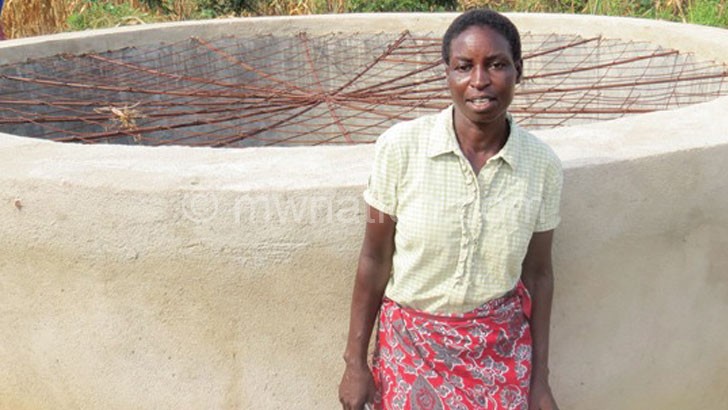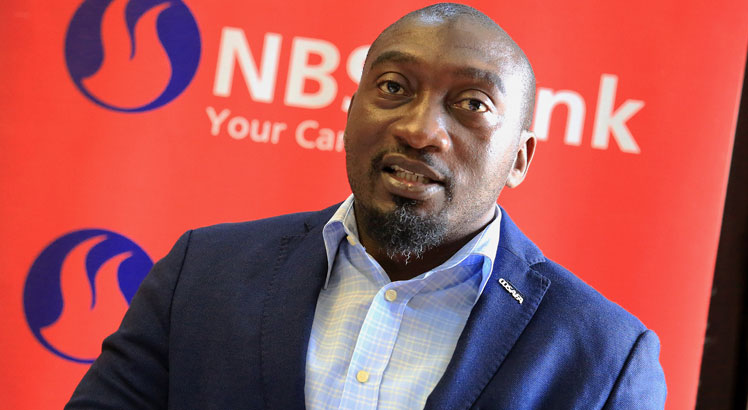New climate, new farming methods
Climate change has forced farmers to change their business as usual approach to the way they cultivate crops.
This is mainly because crops that used to do well in the past are doing the opposite as rains are no longer predictable. They come unexpectedly and stop when farming is in progress.
This has pushed farmers in many communities to revisit their farming methods.

crops from drought
For farmers in Traditional Authority Symon in Neno, they count themselves lucky as Food and Agriculture Organisation (FAO), an institution that assesses the food situation worldwide, has taken a leading role in changing farming patterns in their district.
FAO is working in collaboration with the Malawi Government with financial support from European Union (EU).
Through a programme called Strengthening Community Resilience to Climate Change, the organisation introduced farmer field schools which have proved to be ideal in mitigating climate change in agriculture.
The district’s animal health surveillance assistant Joshua Emmanuel Maseko says farmers at the field schools are taught different interventions that can help them harvest more in the wake of climate change.
He says the measures include rainwater harvesting and use of drought-tolerant crops.
“So far so good. We are impressed because the farmers are putting to good use what they are learning,” says Maseko.
Reaping fruits
Following their training, Kang’ombe Farmer School graduates from Kang’ombe Village in the district will be reaping positive fruits from their patience.
With assistance from FAO, the farmers established a three-hectare cotton farm where they expect to produce higher yields which will fetch them enough money to support their families.
Kang’ombe Farmer School secretary Francis Mwanjomo says after training, they were given money to start farming and they opted for cotton farming.
“Cotton does well here. We hope to harvest a lot of yields. Individually, we grow other crops like maize and also rear animals,” he says.
Mercy Mkungula is another farmer that has benefited from the project. She has four children whom she pays school fees for from livestock and maize sales.
“Hunger is now history in my family. In the past, I could harvest little and I wondered what was happening. But with this new farming strategy, things are different,” she says.
Another farmer, 34-year-old Alefa Manyenje says she is happy with group farming because she learns new farming methods.
She says she now has livestock which multiply quickly because they are well-looked after. This is due to what she learnt from the farmer’s school, according to her.
Beating drought
With erratic and unpredictable rains, farmers from Chikwekwe Village know that without water, their crops might suffer.
In order to make hay while the sun shines, the farmers, through their group called Chileka Scheme, have constructed a water tank (also called seepage well) for irrigation purposes.
According to the scheme’s secretary, Grace Kakowa, the use of the tank has helped them save a number of crops from drought.
“Currently, we are using treadle pumps to draw water from the tank, but we are planning to start using solar pumps,” she says.
The group has planted a number of trees and crops such as bananas and mangoes to help the tank keep water, according to Kakowa.
Knowing what works
Millet is a crop that does well in Nicholas Village such that when FAO gave the area’s Chiyambi Farmer Field School K830 000 to start farming business, the group chose millet.
The group’s treasurer Gladys Suluma says when deciding on the type of cash crop to grow, they looked at their markets.
“This is an area where many people drink beer which is made from millet. As such, there is high demand of the crop and people have already started enquiring.
We expect to realise K3 million from the sale,” says the treasurer whose group comprises 23 people.
Trees on farm
Noting that use of fertilisers has some disadvantages which includes, farmers in Ngaiyaye Village have resorted to growing indigenous trees on their farms to boost soil fertility.
The farmers plant their maize together with gliricidia trees whose leaves enhance soil productivity and increase crop yields.
Chikapa Section agricultural extension development officer Happy Moyo acknowledges soil fertility problem in the area.
“So, the trees are fertiliser which helps crops to grow well. When gliricidia leaves fall in the farms, they turn into good manure,” he says.
Sustainability
According to FAO Zomba district coordinator Graciano Gawamadzi, there are several projects being implemented in Neno under the Strengthening Community Resilience to Climate Change project.
“The project aims at building resilience of vulnerable smallholder farmers to climate variability and change through transformative community empowerment outreach process. Farmer field schools have helped achieve this and I see a bright future for smallholder farmers,” he says.
The project, which started in 2015, winds up in December this year and many farmers The Nation talked to expressed worry that they would not be getting new information.
However, Neno chief agriculture, environment and natural resources officer Patrick Msiyambiri says they have the capacity to sustain the project when FAO leaves. “We were working together and in addition, we facilitated all the trainings as such it will be easy for us to come in should need arise,” he says.




